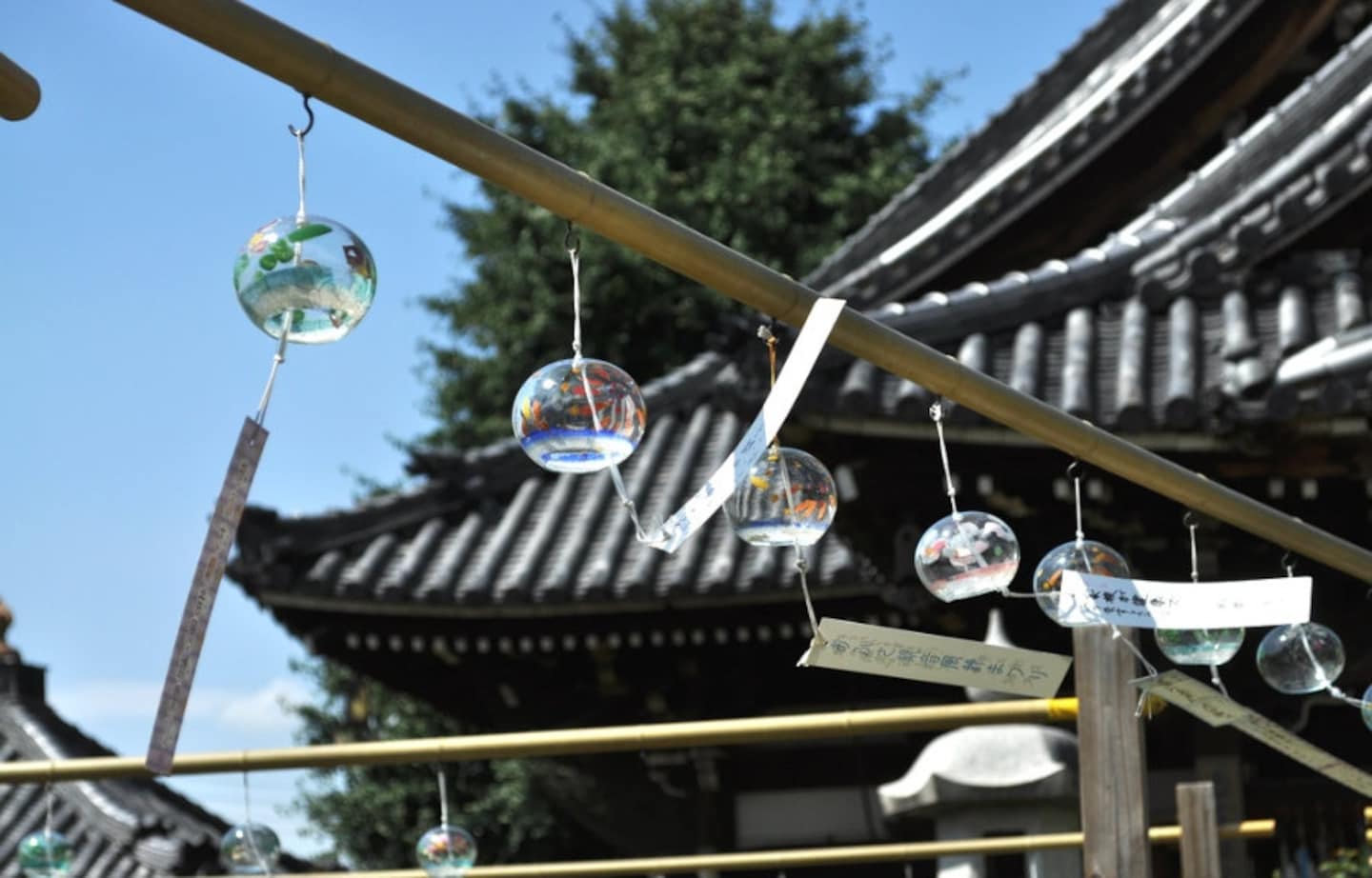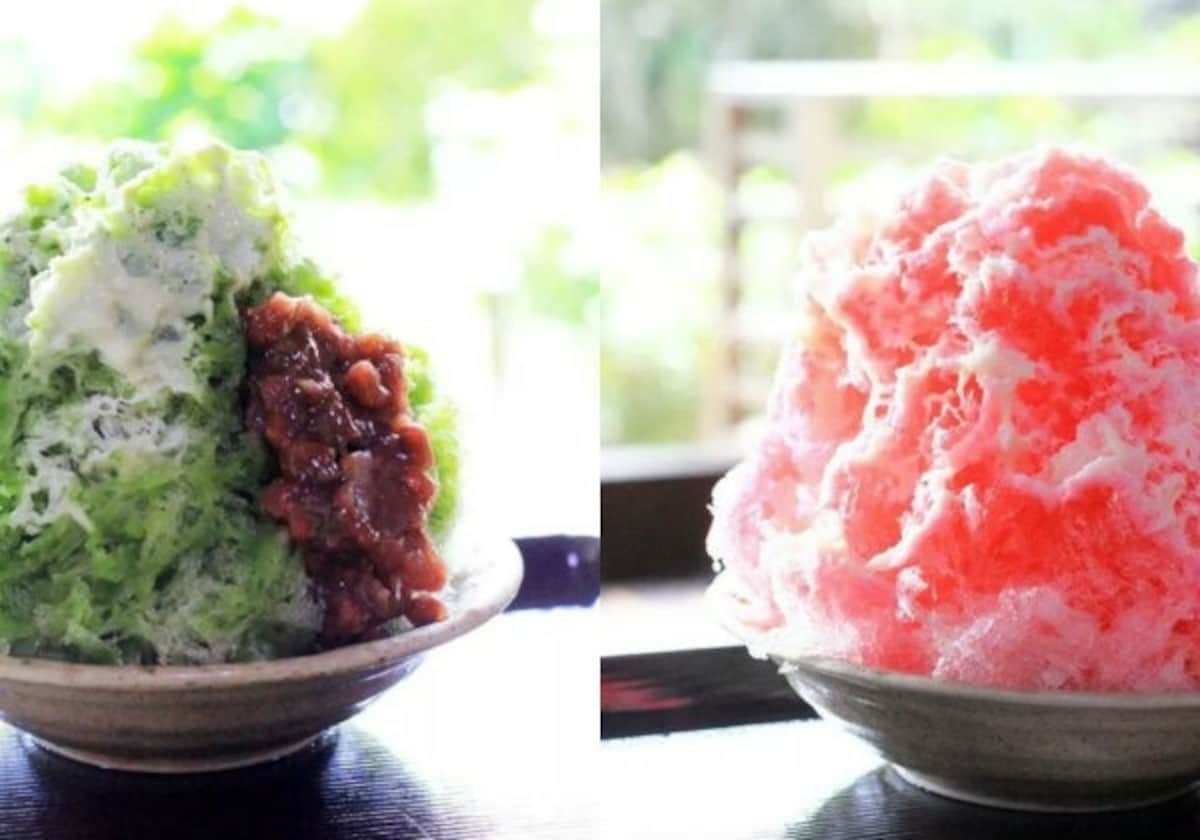Ofusa Kannon Wind Chime Festival
The Ofusa Kannon Wind Chime Festival takes place in Nara Prefecture’s Kashihara City from July 1 to August 31 each year, with over 2,500 hanging wind chimes greeting temple visitors and tourists with their gentle tones. In Japan, the soft sound of wind chimes is said to ward off summer heat.
By Trip101Wind Chimes Beckon Visitors
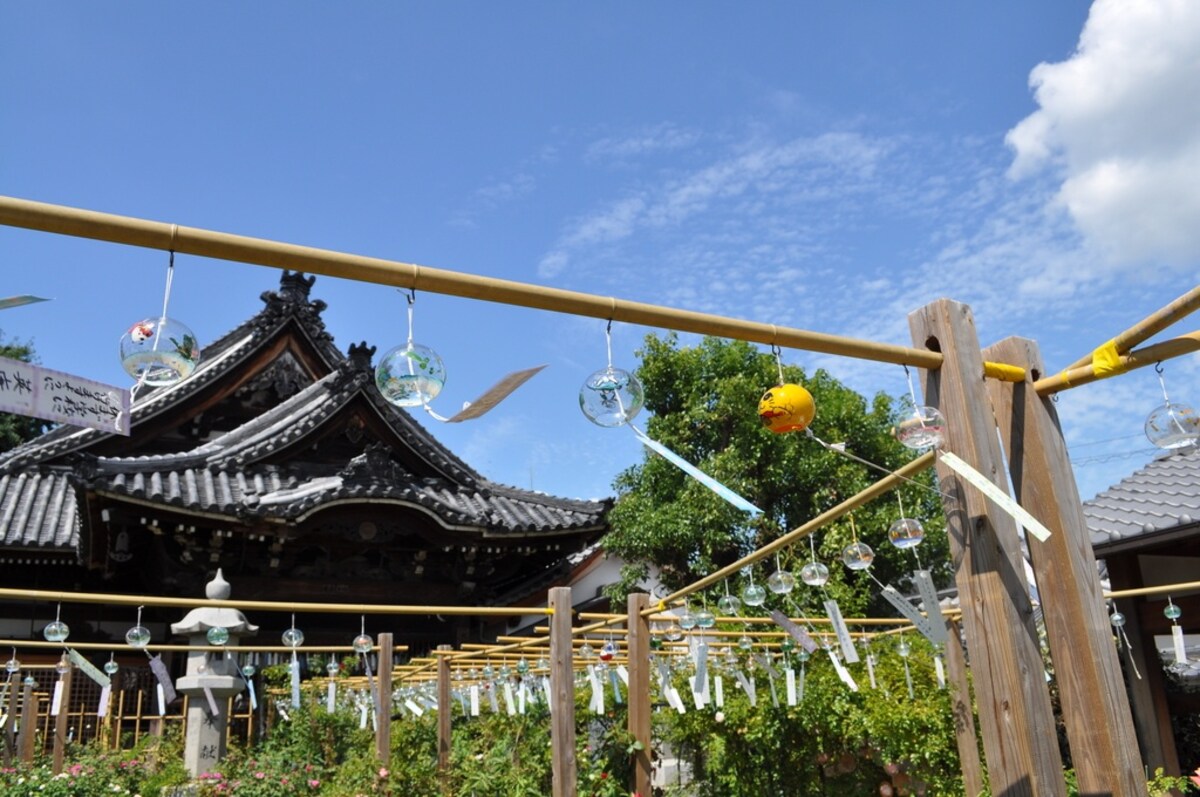
https://trip101.com/article/let-the-tones-of-wind-chimes-soothe-your-soul-at-the-ofusa-kannon-wind-chime-festival-in-nara-prefecture
Ofusa Kannon Temple is located close to the picturesque Asuka Village and Kashihara Shrine, which enshrines Japan's mythical first emperor, Jimmu.
To get there from Yamatoyagi Station, take the bus to Ofusa bus stop and walk, which takes about five minutes. The route there from the bus stop is a bit confusing, but follow the signs and you’ll be fine. Walk to the north and go through the neighborhood, and you’ll be there before you know it. You’ll know you’re getting close when you hear the comforting sound of wind chimes.
You can also get to Ofusa Kannon Temple by walking from JR Unebi Station, which is about a 10-minute walk. However, it’s best to come by taxi, as the festival takes place at the peak of summer. Coming by car isn't recommended, as the roads are very narrow and the parking lots tend to fill up.
Wind Chimes as Far as the Eye Can See
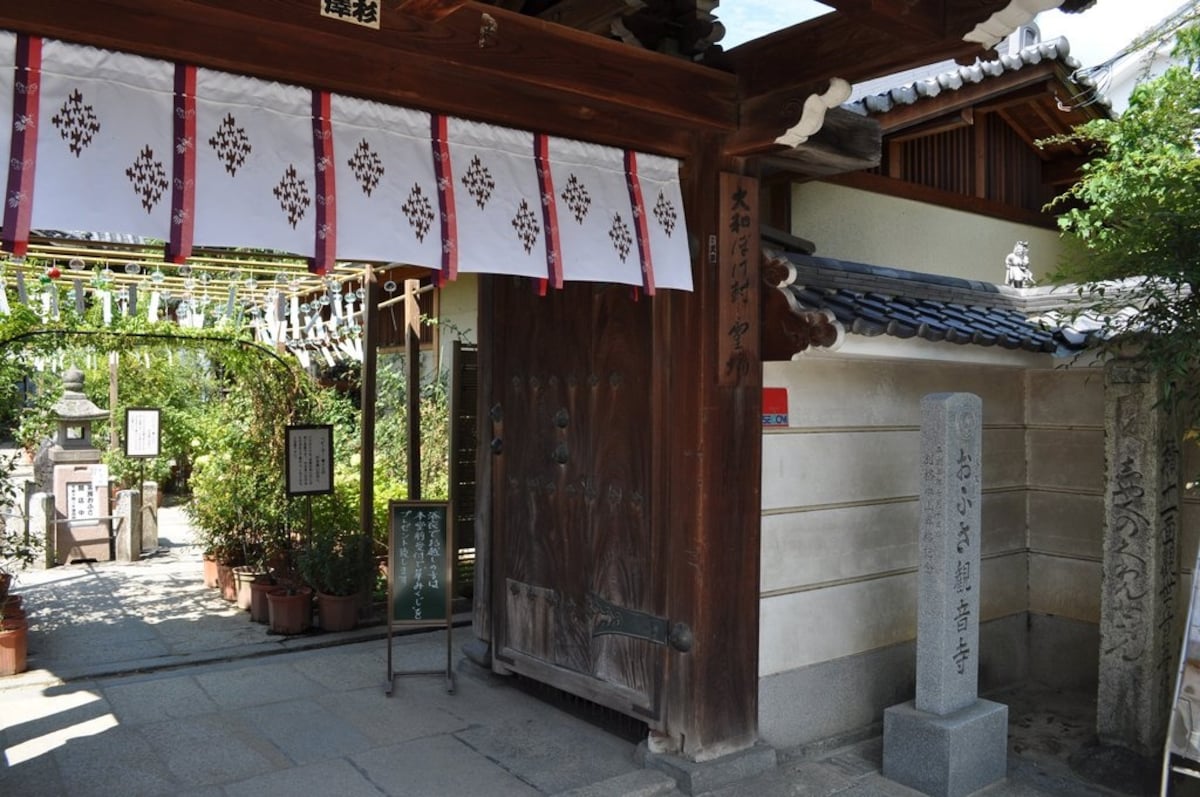
https://trip101.com/article/let-the-tones-of-wind-chimes-soothe-your-soul-at-the-ofusa-kannon-wind-chime-festival-in-nara-prefecture
A peek through the gate reveals thousands of chimes. Together, they can be heard from pretty far away.
Upon entering, the scene of all the different-colored chimes blowing in the wind can only be described as beautiful. They're transparent, which gives them a subdued, pleasant appearance. When the wind blows through the temple grounds, the feeling of being engulfed in the sound of all of the chimes going off at once is a moving experience that you should hear for yourself.
Over 2,000 Types of Roses in Bloom
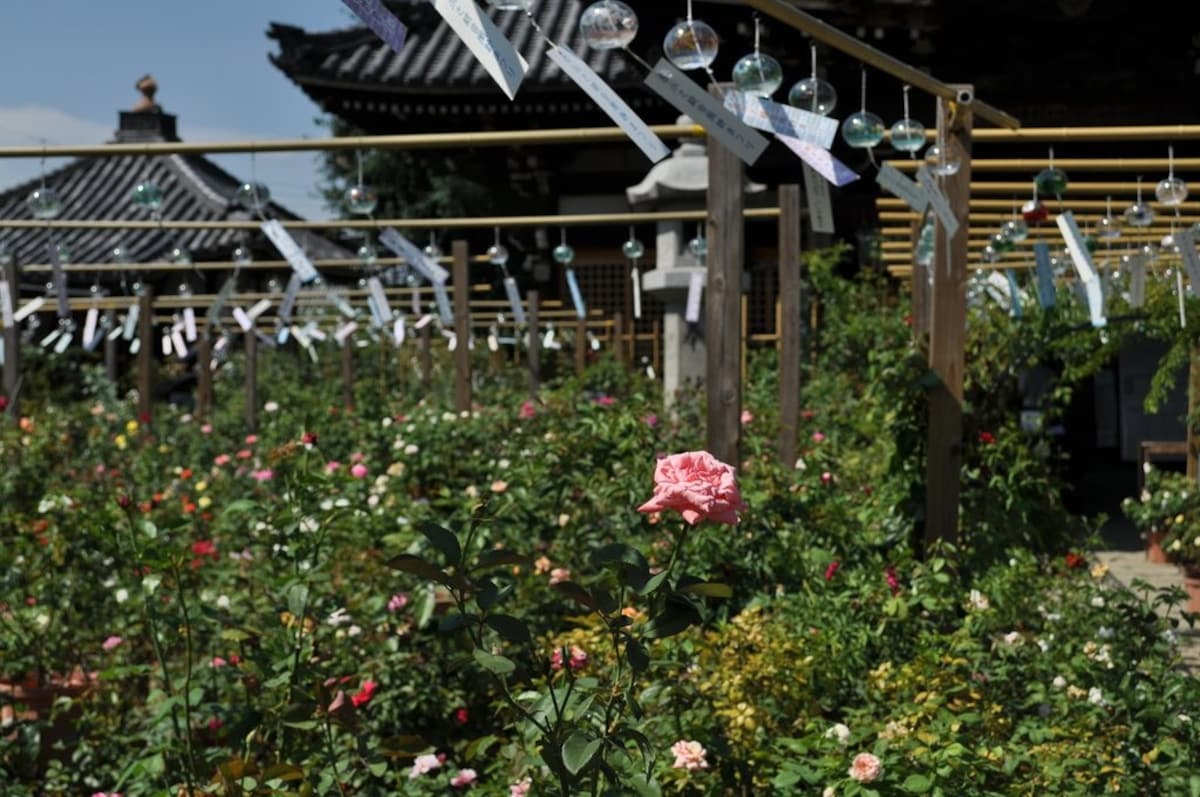
https://trip101.com/article/let-the-tones-of-wind-chimes-soothe-your-soul-at-the-ofusa-kannon-wind-chime-festival-in-nara-prefecture
Ofusa Kannon Temple is also famous for the many roses that bloom on its grounds, and it holds rose festivals in the spring and fall. They can be enjoyed outside of the festival periods as well, so consider viewing the roses and wind chimes together.
Wind Chimes from All Over Japan
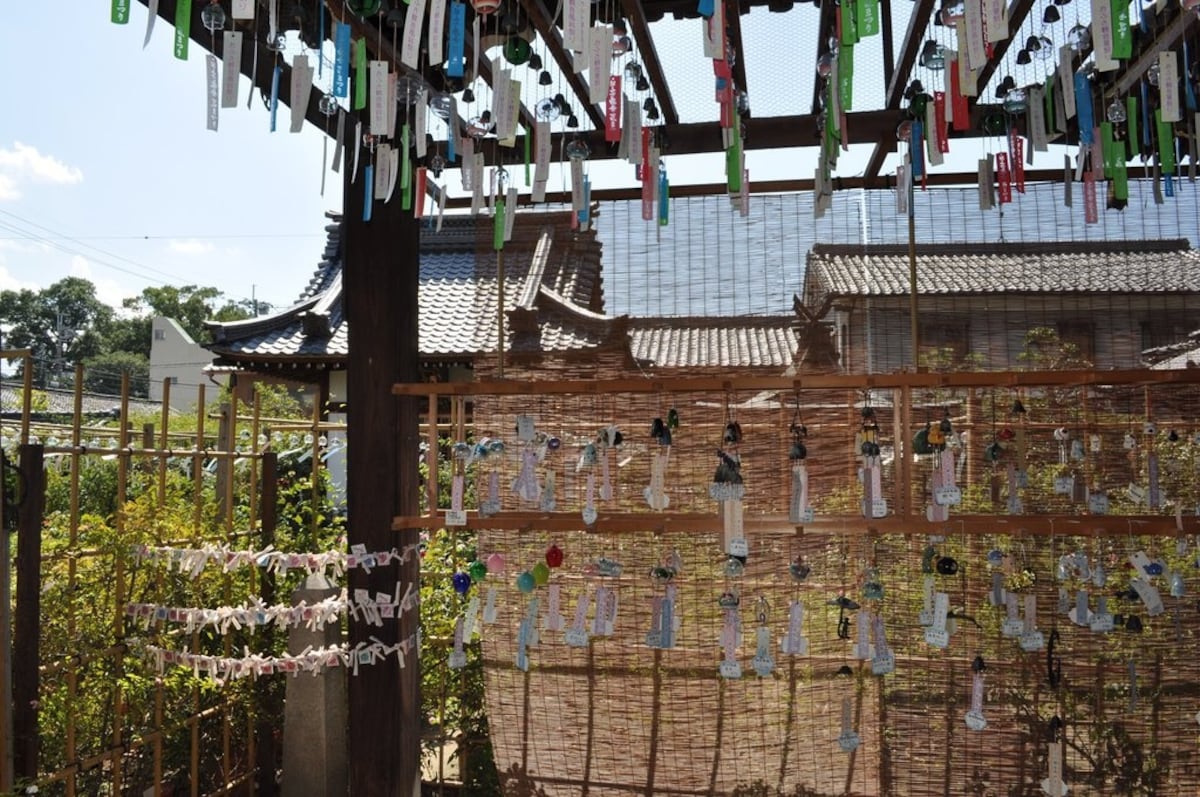
The outside of the temple is decorated in wind chimes made in various parts of Japan. There are even some made in rare shapes such as chopsticks (myochin-hibashi) and teacups (kiyomizu-yaki). It’s like taking a trip through Japan just by looking at wind chimes.
They also sell the wind chimes on-site, and you can choose from over 90 different kinds from all over Japan. You’re sure to find at least one that you like, and you might even be torn over which to take home!
Lifelike 'Iki Ningyo' Doll
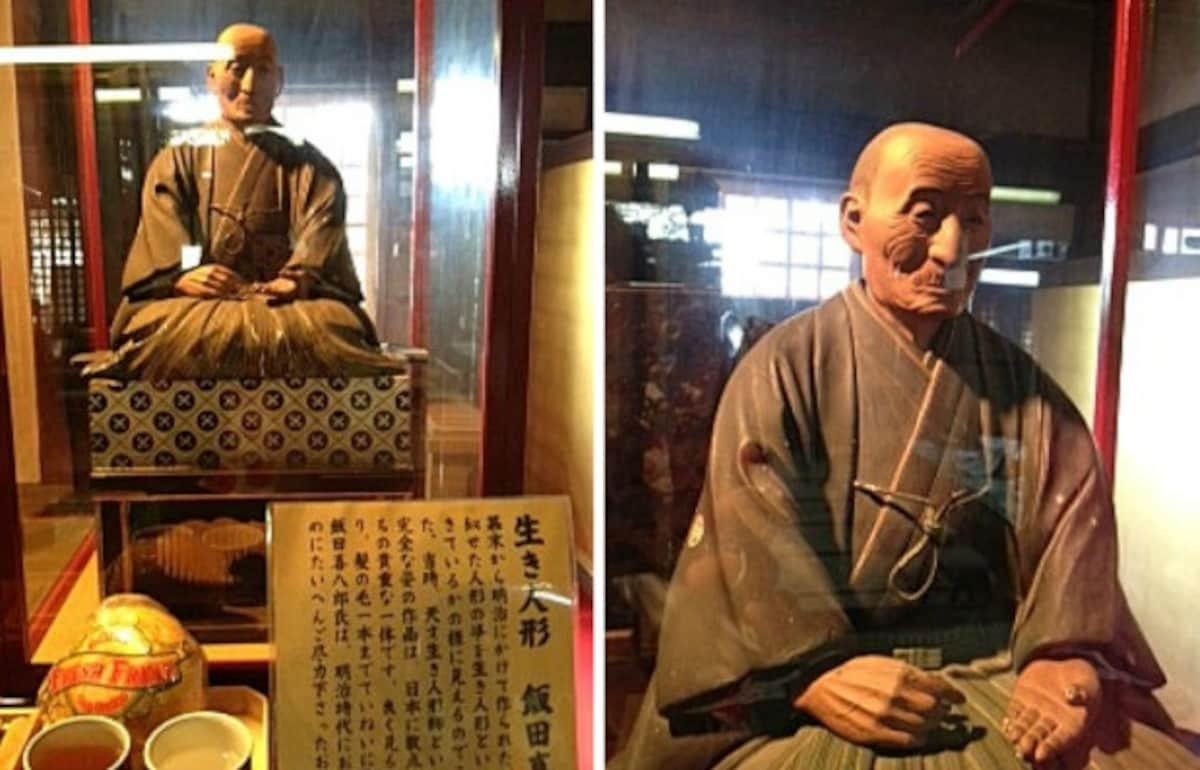
http://blogs.yahoo.co.jp/xcftm518/15937253.html
Alongside the wind chime festival, the temple also exhibits its iki ningyo, perhaps its greatest treasure. Iki ningyo are works of art, dolls meticulously created to look like real people. They have been around in Japan since the Edo Period (1603-1868).
The iki ningyo on display at Ofusa Kannon Temple was created by Kamehachi Yasumoto, an artist who was active at the end of the Edo Period through the start of the Meiji Period (1868-1912). Many in Japan recognize his most famous work of art, the iki ningyo sumo wrestler, which is currently held by the Contemporary Art Museum Kumamoto.
At Ofusa Kannon, you can see the doll representation of Kihachiro Ida, a local celebrity. This doll is not fully life-sized, but the techniques and finesse used to create the details are stunning. It’s so detailed that it looks like it could come to life. Even the veins on the hands were sculpted in one by one, and careful consideration was given to wrinkles on the face. If you go to Ofusa Kannon, don’t pass up the rare opportunity to see it, as few of Yasumoto’s works still exist today.
Wind Down with Shaved Ice
At the back of the path that runs next to the main temple is a small tea house. There, you can have green tea, Japanese sweets and kakigori (shaved ice)—everyone’s favorite summer treat in Japan!
After listening to the tranquil tones and looking at the clear, cool wind chimes swaying in the breeze, kakigori is really the best way to escape the summer heat!


